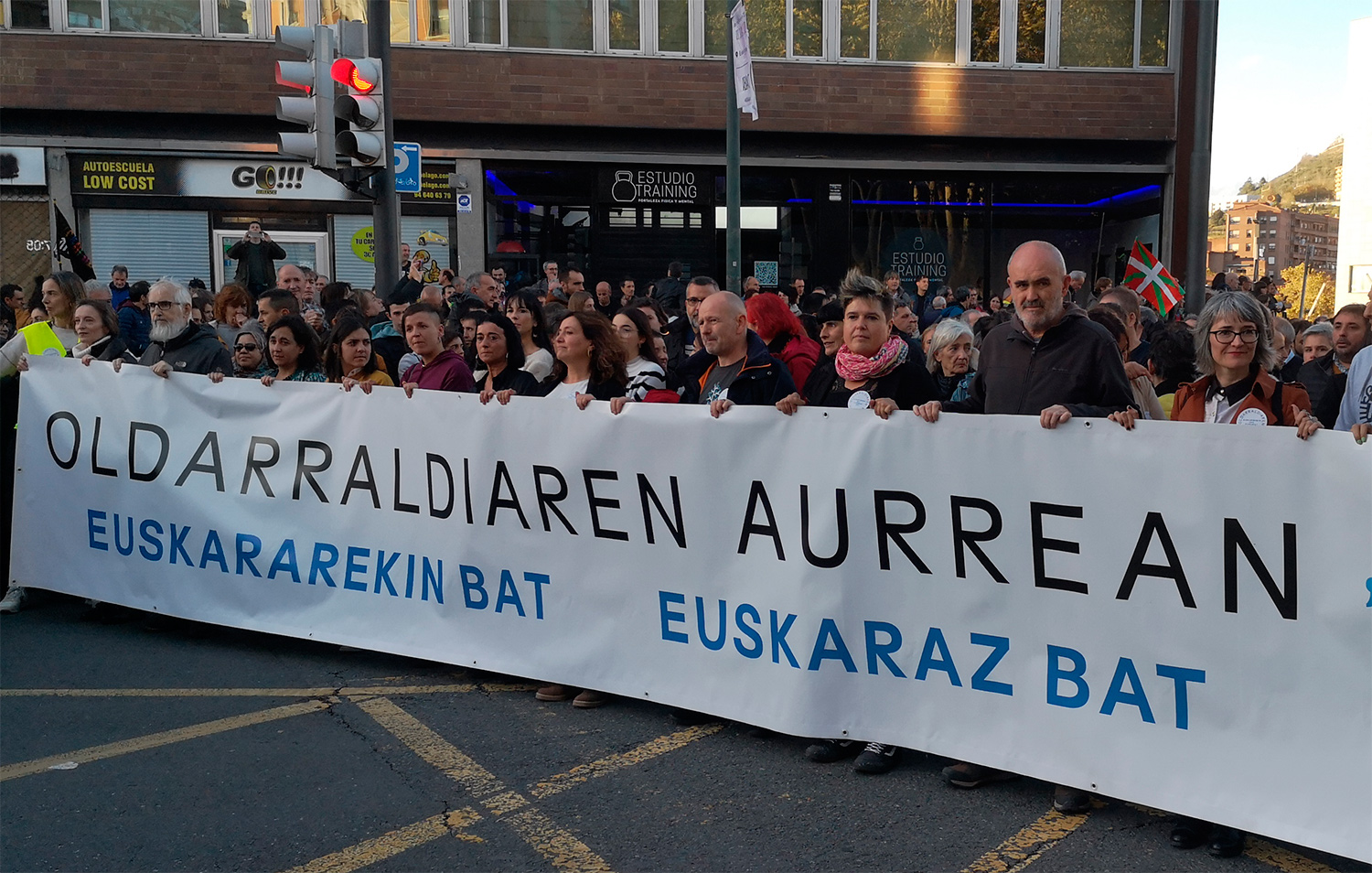
- The High Court of Justice of the Basque Country has rejected the call for two positions of agent of the Municipal Police of Donostia-San Sebastián requesting a linguistic profile B2 in Basque. Faced with this new ruling that "violates the rights of Euskaldunes", several agents have denounced that "the offensive against Euskaldunes has no end" and that this type of crime hinders the normalization of Euskera. On the other hand, the Permanent Commission of the company Euskotren has concentrated in Bilbao when it was about to start the trial for the complaint lodged by UGT against the linguistic demand of the Euskotren stabilisation process in 2002.

The High Court of Justice of the Basque Country has ratified the judgment given in December by the Administrative Dispute Tribunal No. 3 of Donostia-San Sebastián: The City Council of Donostia-San Sebastian has annulled the call made for two police officers of the Municipal Police of Donostia-San Sebastián. The City Council of Donostia-San Sebastian appealed the resolution, but the High Court of Justice rejected it on the grounds that it is not necessary for the agents to know the Basque Country, in the midst of the judicial offensive against the Euskaldunes, for reasons that have been repeated on several occasions: to ask for a profile in Basque "is abusive and discriminatory", as the aim of the local police staff.
"It makes no sense to ask for a linguistic profile to have access to the job market," says the Court, according to the EFE agency. In his opinion, this is a "disproportionate" condition, as it limits access to the public office of the Spanish speakers "without objective reasons". The High Court of Justice has added that "the right of Euskaldunes to communicate in a co-official language" must be guaranteed, but that to do so "it would be enough for every couple of municipal police officers to know the Euskera an agent who serves the citizens". The City Council of Donostia-San Sebastián requested that all members of the Civil Protection Unit of Donostia-San Sebastián have knowledge of the Basque Country, which was first rejected by Court 3 and later by the High Court.
Violation of rights against Euskaldunes
"As a people we have to deal firmly with these attacks on our language, culture and organization," said EH Bildu on the social networks of Donostia-San Sebastián: "We will continue to work to end violations of the rights of Euskaldun citizens," he added. For its part, the LAB union has denounced that in the course that has just begun "the attacks on the right to work and to live in Euskera continue one after the other". He added: "We are not going to take a step backwards on the road to normalization of the Basque country. It is another sentence that violates the linguistic rights of citizens and workers".
Euskal Herrian Euskaraz (EHE) and the Basque Council for Basque Cultural Activity have also pronounced strongly against the TSJPV ruling. "The offensive does not stop," they warned. "It is a fundamental right that we citizens receive the public service in our own language and an agent who is not familiar with the Basque Country cannot guarantee that this is the case," the Governing Council stressed: "The role of the public administration is to provide quality care to citizens, and in violation of language rights, an adequate service cannot be offered. This decision by the courts hinders the normalization of Euskera, which affects the rights of the Basques and Basques".
"Euskotren, for the Basque Country"
In this context, the Permanent Commission of Euskotren convened a rally this Tuesday morning at the Bilbao Palace of Justice to "demand that Euskotren work and serve in Euskera", coinciding with the beginning of the trial for the complaint filed by UGT against the linguistic profile of Euskotren in 2002.
